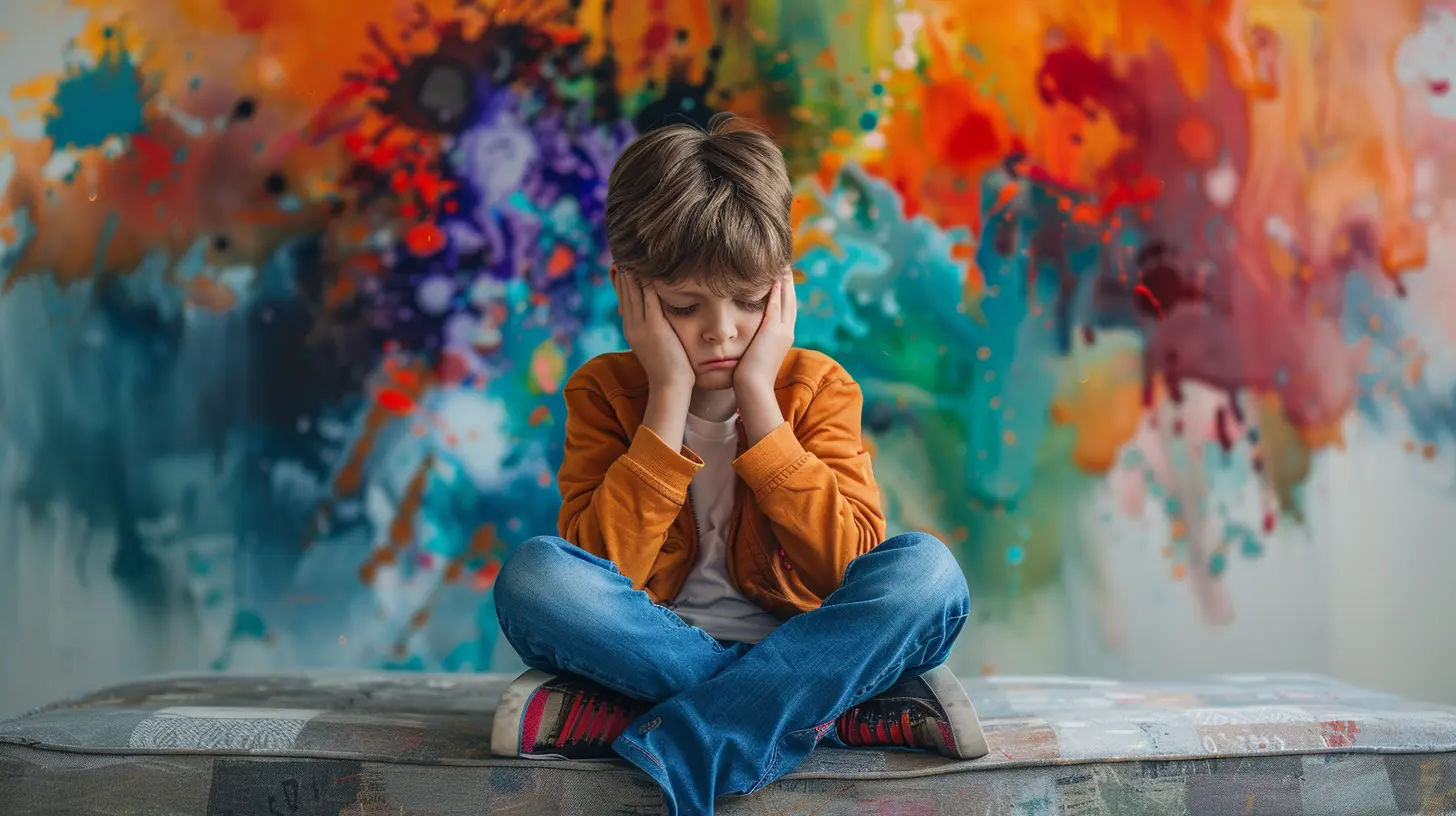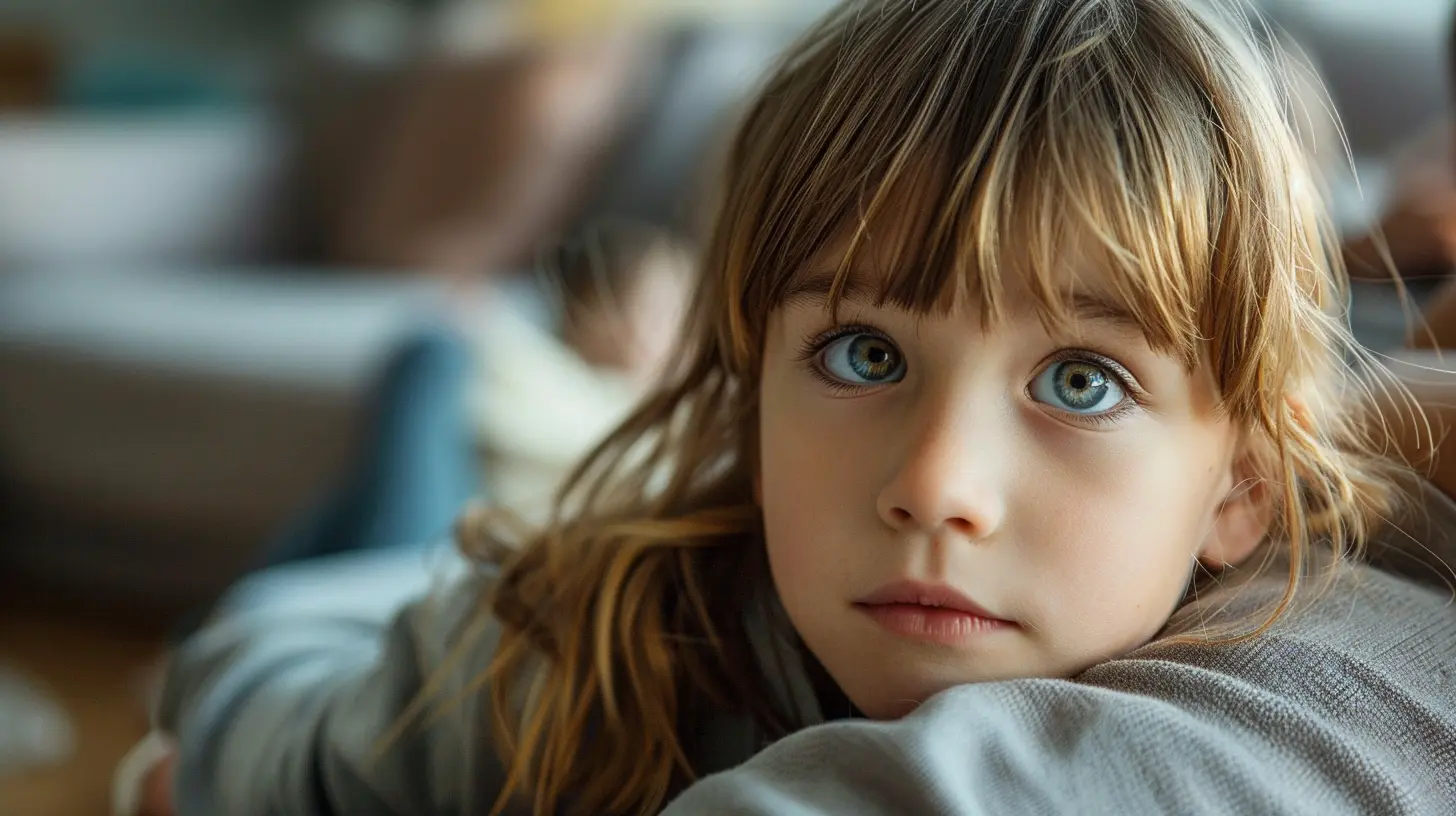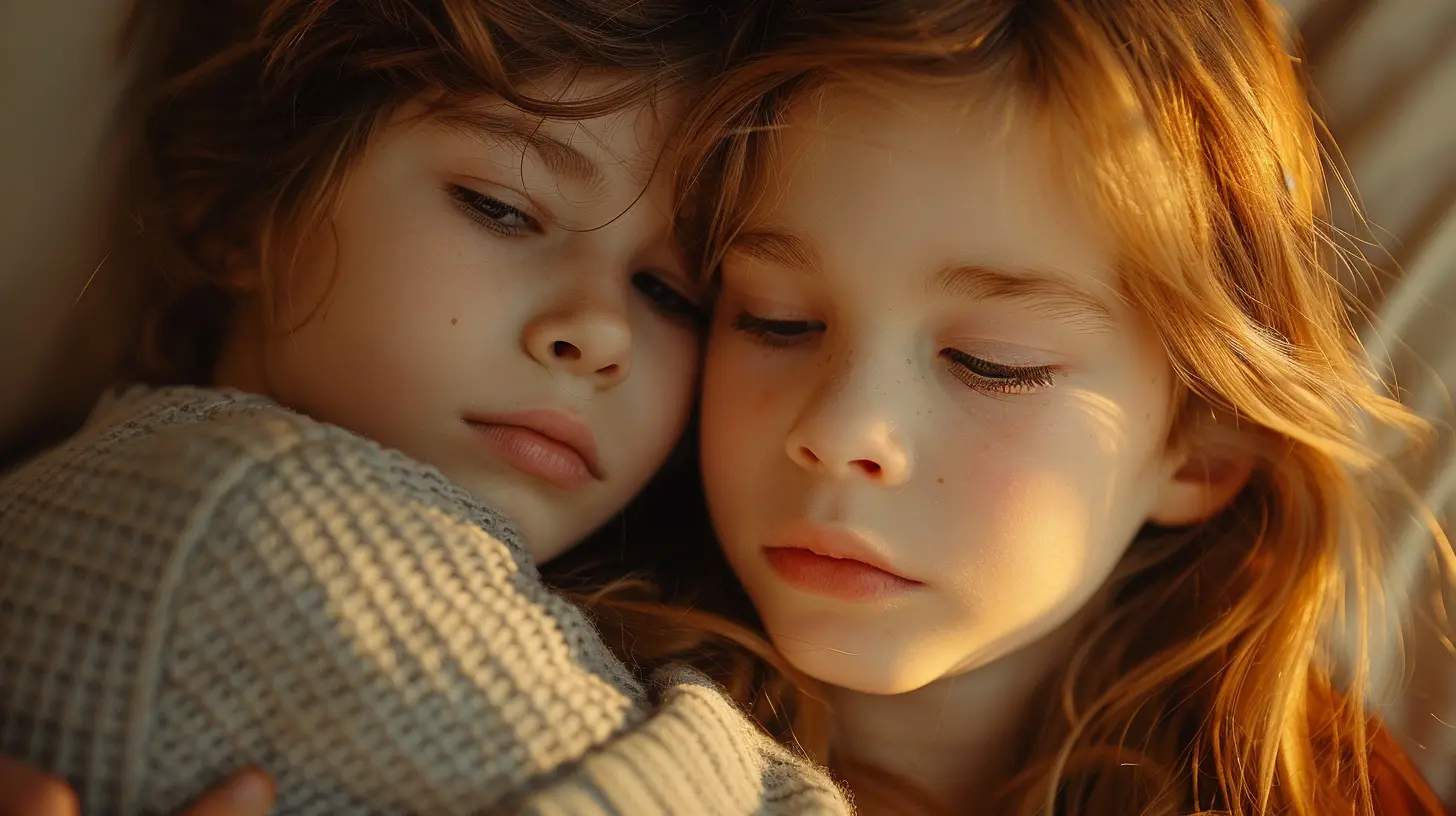Strategies for Helping Siblings of Children with Mental Health Disorders
27 July 2025
When a child is diagnosed with a mental health disorder, it can shake the entire family to its core. Parents often find themselves consumed with appointments, treatments, and emotional rollercoasters. But there's someone else in the background who might be silently struggling — the sibling. These brothers and sisters may not have the same challenges, but their emotional landscape is no less complex or important.
In this article, we’re going to dive deep into how to support these often-overlooked family members. We'll talk about what they go through, how it shapes them, and practical strategies to help them grow in love, understanding, and strength. Ready? Let’s get into it.
The Silent Struggle of Siblings
Imagine being the sibling of a child who requires constant attention — doctor's appointments, therapy sessions, emotional outbursts, and unpredictable behaviors. It’s like living in a house where the fire alarm keeps going off, but no one’s checking to see if you’re okay.Kids in this position may experience:
- Confusion: “Why is my sibling acting like this?”
- Neglected Needs: “Mom and Dad are always too busy.”
- Stress and Anxiety: “What if it’s genetic? What if I’m next?”
- Guilt: “I’m healthy, so I shouldn’t complain.”
These emotions can brew under the surface and lead to long-term effects like low self-esteem, anger issues, or even depression.

Why It's So Important to Support Them
Let’s face it — being the “okay” sibling can be lonely. Just because they aren’t in crisis doesn’t mean they don’t need support. In fact, when their emotional needs are ignored, it can lead to resentment, acting out, or internalized trauma that might not show up until adulthood.Supporting siblings isn’t just good for them — it's good for the whole family. A balanced environment where everyone feels seen and heard helps reduce parental guilt, strengthen sibling bonds, and promote overall mental health within the family.
1. Open the Door to Honest Conversations
Honesty is powerful. Even if your child is only five, they can sense tension or stress. Instead of brushing their questions aside with "You’re too young to understand," try age-appropriate explanations.Use Simple, Clear Language
Tell your child, “Your brother has something called anxiety. It’s kind of like having a loud alarm in your head that won’t turn off. We’re helping him find ways to quiet it down.”Encourage Their Curiosity
Answer their questions patiently, and if you don’t know the answer, it’s okay to say, “That’s a good question — let’s find out together.”
2. Schedule One-on-One Time
Time is love. It doesn’t need to be a weekend getaway. It can be a 20-minute walk around the block, a spontaneous ice cream run, or just a movie night without interruptions.These moments say, “You matter too,” louder than any words ever could.
Ideas for One-on-One Time
- Weekly “date” with each sibling- Let them pick a special activity
- Rotate bedtime stories or tuck-ins
- Invite them to help with dinner or a fun chore
Even if time is tight, consistency matters more than length.
3. Validate Their Feelings Without Judgment
Sometimes, kids feel ashamed for how they feel. Imagine a child who’s furious at their brother for interrupting dinner every night. They might think, “I’m a terrible person for getting angry at someone who’s sick.”That’s where validation comes in.
Say things like:
- “It’s okay to feel frustrated.”
- “You’re allowed to have your own feelings.”
- “It doesn’t make you a bad sibling or a bad person.”
Once they feel heard, they’re more likely to open up again.
4. Empower Them Through Education
Knowledge isn’t just power; it’s peace of mind.When kids understand what’s really going on with their sibling, they’re less likely to feel anger or fear. There are tons of kid-friendly books, videos, and podcasts about various mental health conditions. Tailor the information based on their age and your child’s unique challenges.
Educational Tools Can Include:
- Books like "My Brother is Bipolar" or "Understanding Autism"- Animated YouTube clips that explain ADHD or anxiety
- Teen support forums or mental health blogs
The goal isn’t to overload them — it’s to help them feel more in control.
5. Involve Them (But Don’t Burden Them)
It’s a delicate balance. Siblings often feel either too left out or too involved. You want them to feel like part of the team, not unpaid therapists.How to Involve, Not Overload:
- Let them brainstorm ways to help their sibling feel included- Allow them to attend a therapy session (with permission)
- Ask for their opinions when family routines shift
But — and this is key — never lean on them to manage meltdowns or take on emotional caregiving. That’s too heavy a load for young shoulders.
6. Celebrate Their Individuality
When one child demands more attention, it’s easy for the other to feel invisible. That’s why celebrating the sibling for who they are — outside of the family dynamic — is so essential.Ask yourself:
- What are their hobbies?
- What makes them feel proud?
- What do they need in order to shine?
Whether it’s art, sports, reading, or just having a goofy sense of humor — make it a point to notice and affirm those unique traits.
7. Encourage Healthy Peer Connections
Sometimes the best therapy is a best friend.Encourage your child to build a strong social network outside the home. Playdates, after-school clubs, or just spending time with a cousin can do wonders for their emotional well-being.
Friendships help them:
- Get a break from home stress
- Build empathy and communication skills
- Feel “normal” in a world where things often feel anything but
8. Seek Professional Support (For Them Too)
Here’s the truth: siblings can develop secondary trauma from growing up in a high-stress household. If your child shows signs of anxiety, sadness, or behavioral changes, don’t wait.Family therapy or individual counseling with a child psychologist can give them tools to process their emotions in a healthy way. Some therapists even specialize in sibling dynamics and family mental health.
You’re not admitting failure by asking for help — you’re showing strength.
9. Create Routines and Predictable Schedules
Stability is the best medicine in a chaotic home. Kids crave structure. It helps them feel safe and reduces anxiety.Try to establish:
- Consistent meal and sleep times
- Predictable rituals like Friday pizza night or Sunday hikes
- A visual calendar so they know what’s coming next
Even small routines create a sense of control in an often unpredictable environment.
10. Join a Support Group (You or Them)
Support groups aren’t just for parents or the kid with the diagnosis.There are communities — both online and in-person — just for siblings. They can talk with other kids who “get it,” share stories, or just laugh together.
And if you join one as a parent, you’ll get tips from others who’ve walked a similar path. It’s like cross-referencing your GPS with a local.
11. Normalize All Emotions, Even the Ugly Ones
Kids sometimes have complicated feelings about their siblings — feelings they might be too afraid to say out loud.They may:
- Resent them
- Feel embarrassed by them
- Wish they weren’t there
You might flinch at those confessions, but here’s the thing — normalizing those emotions doesn’t make them worse. It helps them go away.
Let your child know it’s safe to express whatever they’re feeling.
12. Foster Resilience Through Strengths
Here’s the silver lining: many siblings of kids with mental health issues grow up to be incredibly empathetic, strong, and mature.Help them see those qualities in themselves.
Say things like:
- “You’re such a great problem-solver.”
- “I admire how patient you were today.”
- “You have a really kind heart.”
These affirmations plant seeds of resilience that’ll grow over time.
The Big Picture: You're Building a Legacy of Compassion
In the end, supporting siblings isn't just about avoiding long-term damage. It's about raising a generation that understands compassion from the inside out. You're teaching them to love fiercely, set boundaries clearly, and walk beside someone in pain without losing themselves in the process.So yes, it’s a juggling act. And no, you won't always get it right. But by showing up, listening, and loving both your kids the best you can — you’re already making a world of difference.
Keep going. You’ve got this.
all images in this post were generated using AI tools
Category:
Psychological Disorders In ChildAuthor:

Eliana Burton
Discussion
rate this article
1 comments
Bellamy Spencer
Supporting siblings can feel like herding cats at times! Remember, a little humor goes a long way—whether it’s sharing a meme or just making silly faces. Laughter is the glue that holds this family together!
August 23, 2025 at 3:41 AM

Eliana Burton
Absolutely! Humor can be a powerful tool in building connections and easing tensions among siblings. Thank you for sharing this perspective!


